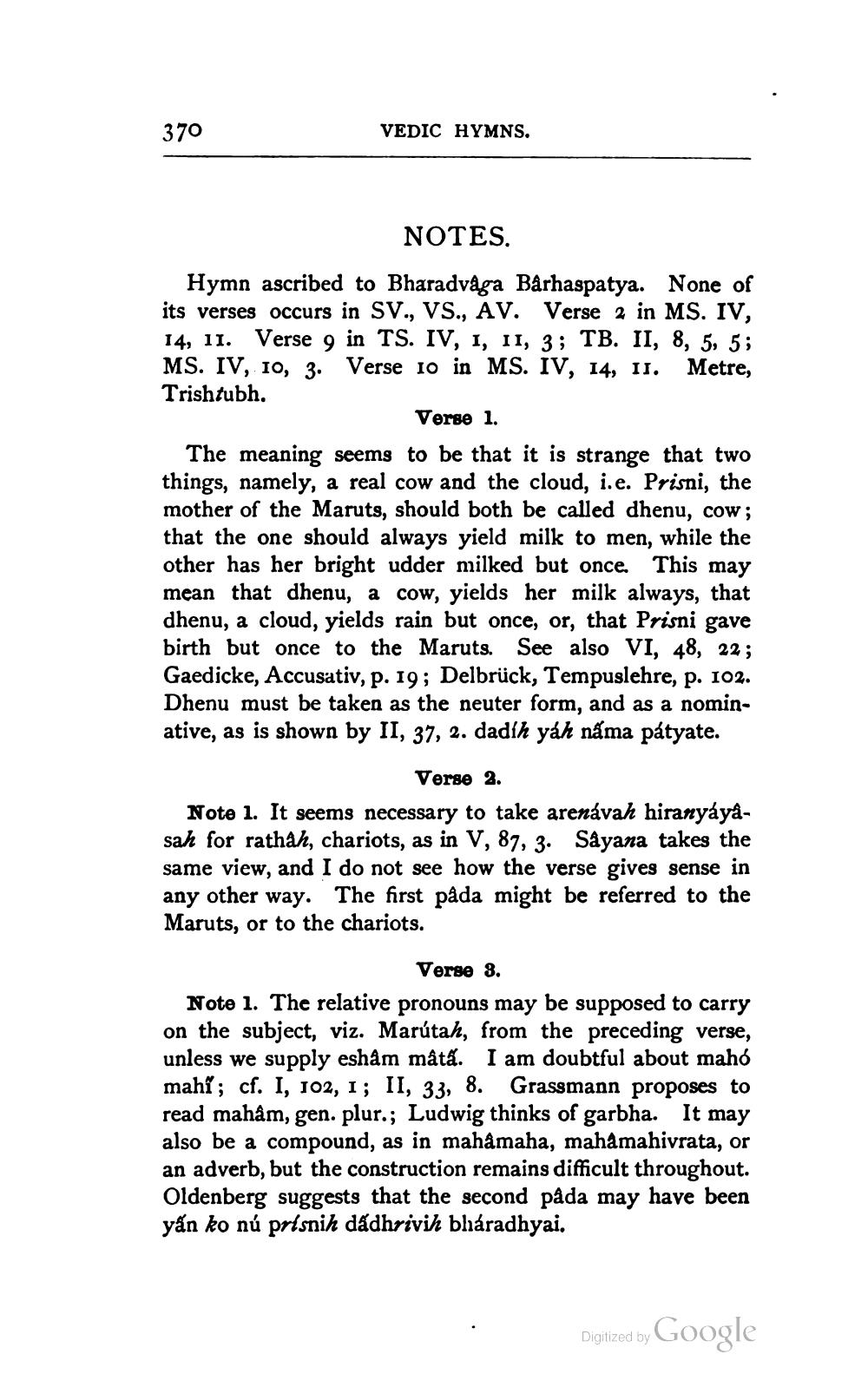________________
370
VEDIC HYMNS.
NOTES.
Hymn ascribed to Bharadvåga Bärhaspatya. None of its verses occurs in SV., VS., AV. Verse 2 in MS. IV, 14, 11. Verse 9 in TS. IV, I, II, 3; TB. II, 8, 5, 5; MS. IV, 10, 3. Verse 10 in MS. IV, 14, 11. Metre, Trishtubh.
Verse 1. The meaning seems to be that it is strange that two things, namely, a real cow and the cloud, i.e. Prisni, the mother of the Maruts, should both be called dhenu, cow; that the one should always yield milk to men, while the other has her bright udder milked but once. This may mean that dhenu, a cow, yields her milk always, that dhenu, a cloud, yields rain but once, or, that Prisni gave birth but once to the Maruts. See also VI, 48, 22; Gaedicke, Accusativ, p. 19; Delbrück, Tempuslehre, p. 102. Dhenu must be taken as the neuter form, and as a nominative, as is shown by II, 37, 2. dadih yah nama pátyate.
Verse 2. Note 1. It seems necessary to take arenávah hiranyáyåsah for rathah, chariots, as in V, 87, 3. Sayana takes the same view, and I do not see how the verse gives sense in any other way. The first pada might be referred to the Maruts, or to the chariots.
Verse 3. Note 1. The relative pronouns may be supposed to carry on the subject, viz. Marútah, from the preceding verse, unless we supply eshâm måtá. I am doubtful about maho mahỉ ; cf. I, 102, 1; II, 33, 8. Grassmann proposes to read mahâm, gen. plur.; Ludwig thinks of garbha. It may also be a compound, as in mahåmaha, mahamahivrata, or an adverb, but the construction remains difficult throughout. Oldenberg suggests that the second pâda may have been yan ko nú prisnih dádhrivih bháradhyai.
Digized by Google




